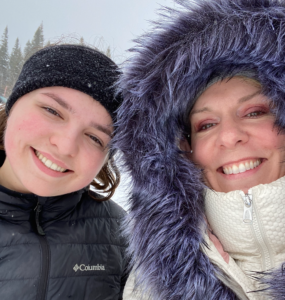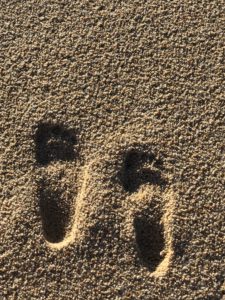Hello friends,
I’m sitting here on this wintery day, slowing down my pace a bit between busy holidays. It is a welcome time of year for reflection, gratitude, and outlook on the new year. As I type and watch the snowfall, I am filled with immense gratitude that so many of you invite me into your lives, both personally and professionally. Your strength, vulnerability, and professionalism are noticed and appreciated.
Reflection
As I reflect on 2021, my eyes fill with tears. My goal in moving my work to a training and consultation model was to touch more lives, hear more stories, and have a broader impact on children, families, and patients. Here are some milestones my small, mighty team and I accomplished this year:
- Dozens of consults to healthcare organizations, large and small. Mainly around managing uncertainty and acknowledging that “It’s OK to NOT be OK.”
- 4 trainings for hundreds of early childhood educators about the impact of trauma on children and ways to build resilience
- 2 large trainings and 4 parenting classes aimed at decreasing child abuse in Oregon.
- Supervision for DHS managers and supervisors as they navigate overwhelming circumstances to protect children.
- 2 ECHO Trainings for integrated behavioral health care & child psychiatry.
- 2 INCREDIBLE conferences at the farm inviting over 50 providers to our property to address trauma and build resilience for patients and their families.
- The launch of The Provider Lounge – a community to build resilience for medical providers. AH-mazing group of individuals.
- The launch of THRIVE – an organizational consultation group for clinics committed to organizational wellness.
Wow. Just wow. Thank you for trusting my advice, allowing me to be your guide and inspiration as we navigate rough waters. More so, I want to reflect on the gratitude I feel from each of these opportunities.
Gratitude
It’s easy to tick off boxes of accomplishments as I review my 2021 calendar. But here’s what emerged during these encounters, for which I am truly grateful. This was the most important work I did this year:
- Sitting with providers in tears as they express overwhelm, disappointment, confusion and fear.
- Supporting parents who feel uncertain, lack confidence, attempt to break cycles of intergenerational trauma or learn new skills.
- Laugh with early childhood educators about how little people show up and model resilience, forgiveness and the magic of early childhood with adults who believe in them and love them.
- Reach out to supervisors as they attempt to support case workers navigating unspeakable truths about how children are maltreated. Encouraging words, wise guidance, and authenticity were present in all of them.
- Providing insight for providers around mental health, behavioral health, and collaboration on medical teams. Expert group understanding provided insight and strength to all of us!
- On the farm – sitting with awareness, tears, support, and epiphanies as providers navigated ways to continue to support their patients, address trauma and become resilience-building heroes in their practices.
- Creating a safe space in The Provider Lounge where providers feel like they can show up, bring hard questions, ponder ways to mitigate trauma and ask curious questions.
- And, working with new colleagues and healthcare systems to transform primary care and creating thriving organizations.
Thank you so much for trusting me, asking the hard questions, sitting with tough answers, supporting each other, holding each other’s truths and continuing to forge on through the hard work that needs to be done. I see you, I’m amazed by you, and I am humbled by your humanity and brilliance.
Outlook
What do we do with all of this collective learning, support, pain, curiosity, and insight? We create more space for it to grow! You know what else we continue to do? Be in community where we show up as brave and honest as we can be – full hearts, open minds, and curious questions.
The common theme in ALL of the work that I committed to this year and ALL of the work that you LOVED was…connection. Connecting stories, with each other, with me, with other providers, and in groups. Whether those groups were in-person or virtually, being together matters. Connection creates triumph during hard times. Connection, story-telling, sharing hard truths and sitting with each other’s pain was what created meaning, a village, and a space for growth. This is what I know changed me and changed you.
It’s truly the most important medicine.
So, will you do me a favor? Will you make a list of your achievements, large and small? Then go back through and take inventory of what truly made those accomplishments feel meaningful. My guess is that you, too, will find a common thread.
Then let me know what themes you find because I love hearing from you.
With gratitude and hope in the new year,
Dr. Amy




